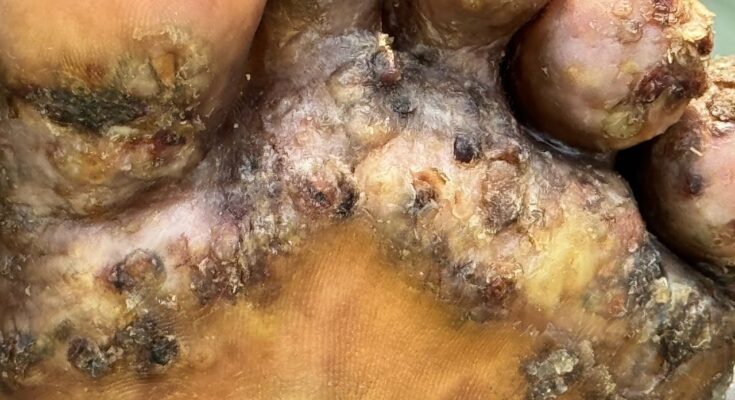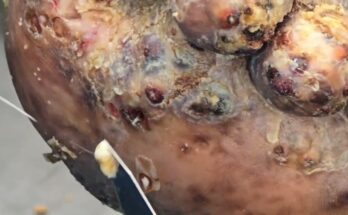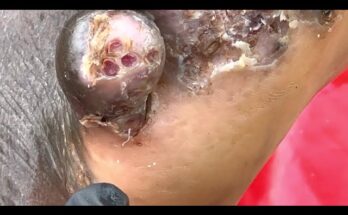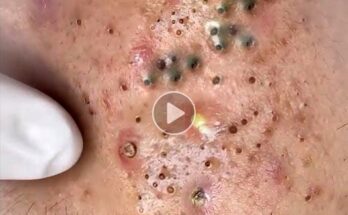🦟 What Makes Jiggers Harmful?
Jiggers (Tunga penetrans) are tiny parasitic fleas that burrow into human skin—usually on the feet—causing a painful and debilitating condition called tungiasis. Though small in size, their impact can be devastating, especially in impoverished communities with limited access to healthcare.
🧬 How Jiggers Harm the Body
- Burrowing behavior: The female flea embeds itself into the skin to lay eggs, causing swelling, itching, and intense pain.
- Rapid multiplication: One flea can lead to dozens, creating clusters of lesions.
- Open wounds: The embedded flea causes ulcers that are prone to bacterial infections.
🚨 Health Complications
- Infections: Open sores can lead to tetanus, sepsis, or gangrene if untreated.
- Tissue damage: Repeated infestations deform toes, nails, and skin.
- Mobility issues: Severe pain makes walking difficult, affecting daily life.
- Permanent disability: In extreme cases, untreated tungiasis can cause lifelong deformities or even death.
🧠 Emotional and Social Impact
- Isolation: Visible infestations often lead to stigma and exclusion.
- Mental health: Chronic pain and social rejection can cause depression and anxiety.
- Lost productivity: Children miss school; adults lose income due to immobility.
🛠️ Unsafe Digging Risks
- Unsterile tools: Using needles or blades without proper sanitation increases infection risk.
- Incomplete removal: Leaving parts of the flea inside worsens inflammation.
- No medical oversight: Digging without professional help can cause more harm than good.
🛡️ Prevention and Safe Treatment
- Wear shoes: Closed footwear prevents jigger entry.
- Improve hygiene: Clean floors and regular foot washing reduce risk.
- Seek medical help: Clinics offer sterile removal, antibiotics, and tetanus shots.
- Community outreach: Organizations like provide care kits, education, and protective shoes to break the cycle of infestation.



